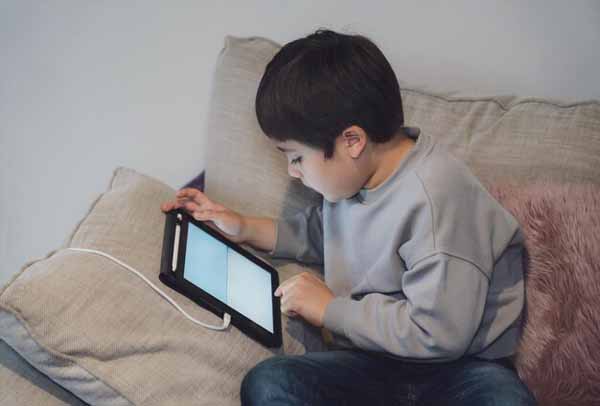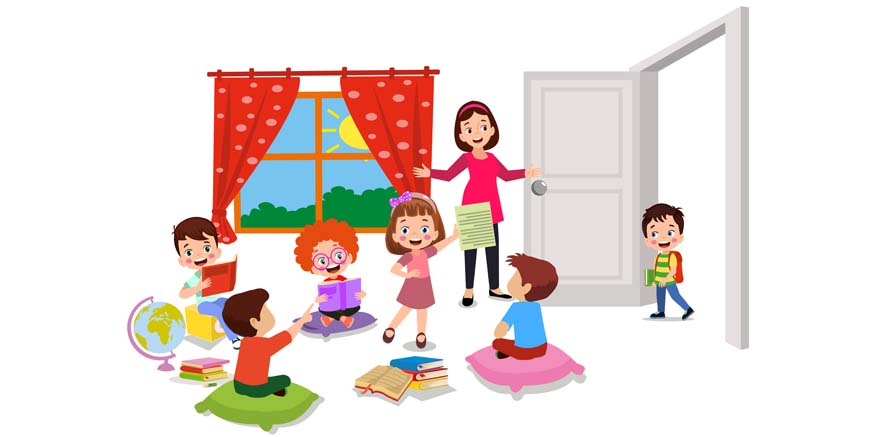Preschoolers are naturally curious and energetic, constantly exploring the world around them. They can, however sometimes become overwhelmed by excessive sensory input, such as loud noises, bright lights, or too many activities at once. This state of overstimulation can lead to tantrums, anxiety, or difficulty focusing. Parents, teachers, and caregivers need to recognise the signs of overstimulation and know how to help children feel calm and secure. Here are effective strategies to manage and prevent overstimulation in preschoolers.
Understanding Overstimulation in Preschoolers
Overstimulation happens when a child is exposed to more sensory input than they can process. This could be due to a crowded environment, too much screen time, or even back-to-back activities with no downtime. Some common signs of overstimulation include:
- Irritability or crankiness.
- Tantrums or meltdowns.
- Covering their ears or eyes.
- Clinginess or withdrawal from activities.
- Difficulty sleeping or settling down.
Recognising these signs early can help parents and caregivers intervene before the situation escalates.
- Create a Calm Environment
- Set Realistic Routines
- Limit Screen Time
- Teach Self-Regulation Techniques
- Provide Breaks During Busy Activities
- Encourage Physical Activity
- Use Sensory Tools
- Be Mindful of Transitions
- Reduce Exposure to Overwhelming Stimuli
- Foster Open Communication
- Ensure Adequate Rest
- Stay Patient and Supportive
A peaceful and predictable environment can do wonders for an overstimulated child. Try to create spaces at home or in classrooms that are calm and free from excessive noise or clutter. Use soft lighting, comfortable seating, and soothing colours to make the environment more relaxing.
If a child appears overwhelmed, consider leading them to a quiet corner where they can take a break. Quiet corners can include cushions, books, or calming sensory toys to help the child self-soothe.
Children thrive on routine because it provides structure and predictability. When a child knows what to expect, they are less likely to feel overwhelmed. Create a simple daily schedule that includes time for play, learning, meals, and rest.
It’s important to avoid over-scheduling. Preschoolers need free time to engage in unstructured play, which allows them to relax and explore their world at their own pace.
Excessive screen time can contribute to overstimulation, especially if the content is fast-paced or loud. Screens emit blue light, which can affect sleep and make it harder for children to calm down.
Set clear limits on screen time and encourage alternative activities, such as reading, drawing, or outdoor play. When screens are used, opt for calming and educational content instead of high-energy shows or games.

Even at a young age, children can learn simple self-regulation techniques to manage their emotions. Teach preschoolers to identify their feelings by labelling emotions, such as “happy,” “sad,” or “frustrated.” This helps them express themselves better rather than acting out.
You can also introduce deep breathing exercises. For example, tell the child to imagine blowing up a balloon: take a deep breath in and slowly exhale as if inflating a big balloon. This technique helps them calm their mind and body.
During family outings or school events, preschoolers may feel overwhelmed by the noise and energy around them. Schedule short breaks to help them recharge. For example, if you’re at a birthday party, take your child to a quiet room for a few minutes to rest before re-joining the group.
Encourage your child to tell you when they feel tired or overwhelmed, so they can take a break when needed.
Physical activity is a great way for children to release excess energy and stress. Activities such as running, jumping, or playing outdoors can help them regulate their emotions.
However, balance is key. Too much physical activity without downtime can also contribute to overstimulation. Include both active and quiet play in their daily routine to ensure they get the right balance.

Sensory tools can help calm overstimulated children. Items like stress balls, weighted blankets, or fidget toys can provide comfort and help them focus.
Another effective tool is a sensory bottle. Fill a clear plastic bottle with water, glitter, and small objects. Shaking the bottle and watching the glitter settle can have a soothing effect on preschoolers.
Transitions, such as moving from one activity to another, can be challenging for young children. Sudden changes may lead to feelings of confusion or frustration.
Prepare your child for transitions by giving them a heads-up. For instance, if playtime is ending, let them know five minutes in advance. Using songs or visual timers can also make transitions smoother and less stressful.

If certain environments or activities repeatedly overwhelm your child, try to minimise their exposure. For example, if they struggle with loud shopping malls, plan trips during quieter hours or bring noise-cancelling headphones.
At home, keep their play area free from distractions like loud music or flashing lights. Simplifying their surroundings can make a big difference.
Encourage your child to share their feelings with you. When they express that something is too loud, bright, or busy, listen and validate their emotions. Let them know it’s okay to feel overwhelmed and that you’re there to help them.
Having open communication builds trust and helps children feel secure in expressing themselves.
Sleep plays a crucial role in a child’s ability to handle sensory input. Lack of rest can make them more prone to overstimulation. Establish a consistent bedtime routine that includes calming activities, such as reading a book or listening to soft music.
Make sure your child gets enough sleep based on their age. A well-rested child is better equipped to manage sensory challenges.

Managing overstimulation requires patience and understanding. Young children are still learning how to navigate their emotions, so they need your guidance and reassurance.
Instead of getting frustrated, offer a calm presence and comforting words. Let them know they are safe and that you’re there to help them feel better.
The Role of Early Education in Managing Overstimulation
Preschools play a significant role in helping children develop coping skills for sensory challenges. A nurturing preschool environment provides structured routines, calming spaces, and supportive educators who understand children’s emotional needs.
At Mothers Pet Kindergarten (MPK), the well-being of every child is a priority. MPK creates a balanced environment that encourages exploration and creativity while ensuring children feel calm and secure. The experienced staff at MPK use effective strategies to help children manage sensory input and build essential emotional resilience.













Recent Comments